40 лет Санкт-Петербургской типологической школе - [85]
To, pac'yn mon'ydlön rys' kašn'ikjas
there oven-iNESS daughter.in.law-POSS2SG-GEN curd cheese.pots
s'ujalöma
put-PERF-3SG
«There, your daughter-in-law has put curd cheese pots in the oven» [Doronin 1995:17].
In the following example, the construction can hardly be interpreted as evidential, conjecture or hearsay; it simply reports on the appearance of a person. The meaning of state becomes very clear due to völi:
Sylön völi jurs'isö šyröma<…>
s/he-GEN was hair-ACCDEF shear-PERF-3SG
«He had had his hair cut <…>» [Doronin 1995:131].
In early fiction, there are some cases of the construction with intransitives:
Mel'nic'ayn udžaligön kymynys' sylön tatc'ö
mill-lNESS work-GERUND how.many.times he-GEN here
volyvlöma völi, kymynys' pukavlöma so
come-FREQ-PERF-3 SG was how.many.times sit-FREQ-PERF-3 SG this
esijö beregdorsa kydz' ulyn!
very river.bank birch under
«When working in the mill, how many times he had come here, how many times sat under this very same birch on the river bank!» [Fedorov 1955:128].
The writer in question shows in his production a fairly strong influence of Russian, which is noticeable to Komi language specialists. Whether or not this possessive construction is connected with Russian dialects or not, Fedorov shows during his long career (from the 1930s to the 1990s) a growing predilection for its usage. In the early stories (1930—1950s, [Fedorov 1955], 282 pages) there are only four cases of the possessive impersonal, the one above included, whereas in the prose of the 1990s ([Fedorov 1989], 165 pages), there are 16 cases.
To native speakers, specialists in the Komi language, intransitive frequentative verbs with the suffix — vl are quite acceptable when the situation refers to a repeated action in the remote past. One informant states that the essence of the usage with the genitive is to stress that the time is over, the action cannot continue in the present situation. Another example from modem prose shows that this idea is preferably supported by the adverb n'in «already».
Menam volyvlöma n'in te ordö!
I-GEN come-FREQ-PERF-3 SG already you to
«I have already been to your place!» [Juškov 1988: 75].
The context concerns the time after the revolution: a kulak asks a neighbour to come and see whether he really is a rich kulak, deserving punishment. The neighbour, who thinks that the speaker is an exploiter, gives the above answer. According to informants, he expresses his opinion that he had already visited the formerly wealthy man quite often enough. The common factor with the previous example is the finality of the situation: there will be no continuation. In this sense, the logically clearer resultativity inherent in the transitive constructions can be extended to intransitives. Figuratively speaking, the extent of the events is completed, the subject is not involved any more, and his past is an unchanging state now left behind.
Another case from modern prose shows an intransitive verb without the frequentative suffix. So far, only two cases of such constructions have been found, and one of them is rather doubtful. The first comes from the prose of G. Juškov, the most eminent living writer in Komi:
Mijan ta vylö i petöma! — virdyštlis s'injasnas
we-GEN this upon PTL come.out-PERF-3SG flash-PST-3SG eyes-INSTR
Bašlykov. — Byrödny okkupantjassö!
Bashlykov destroy-INF occupiers-ACCDEF
«This is why we are here! — Bašlykov's eyes flashed. — In order to destroy the occupiers!» [Juškov 1988:220].
The second example comes from the 1990s and actually represents a translation of a Russian text of a local Komi writer:
Bat'lön kytc'ökö munöma
father-GEN somewhere-to go-PERF-3SG
«The father had gone somewhere» [Gabova 1997:40].
In the context, the relevant passage is concerned with the absence of the parents who had left a child alone at home. Out of seven informants, four have so far rejected this construction as a mistake, saying that the nominative form should be used instead:
Bat' kytc'ökö munöma.
father-NOM somewhere-to go-PERF-3SG
Further two informants state that the verb form should be reflexive:
Bat'lön kytc'ökö munsöoma
father-GEN somewhere-to go-REFL-PERF-3 SG
«The father (it appears) had gone somewhere».
The seventh, a speaker of the Lower Vychegda dialect, feels that the genitive somehow creates a state and a distance better than the nominative. For instance, it would not be appropriate to continue talking about the father in the next sentence. For this speaker and the writer, the choice of the nominative probably signifies cancelling the prototypical feature of the nominative subject as a topic, shifting the agent into the background description. As the dialect of Lower Vychegda has for centuries been in contact with Russian settlers who spoke north Russian dialects, the genitive can be seen as a contact phenomenon.
On the other hand, similar phenomena (i. e. use of nonnominative primary NPs with participial passive predicates) is found in large parts of Eurasia. M. M. Sahokija, the focus of whose research lies in the Kartvelian languages and Iranian, even suggests a universal model, an «archi-system» and «archi-models», which point towards the idea of the monogenesis of human language [Sahokija 1998: 52]. Perhaps the term «prototypical» as applied to the functions of morphological forms marks a cautious midway between facts and theories.

Книга Гасана Гусейнова «История всего: лекции о мифе» — увлекательное чтение об античности и не только. В ее основе лежат лекции, прочитанные для издательского дома «ПостНаука». В них, как и в других работах автора, далекое прошлое вступает в диалог с настоящим. Прожорливый Кронос, трусливый Зевс, капризный Эрот уже не просто герои мифов — они наши современники, которые заново открывают телесность и пол, вдохновляют панков и отвечают на ключевые вопросы современной культуры.
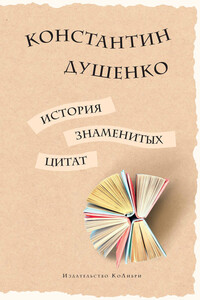
Популярные цитаты – одна из важных частей культуры; нередко это формулы нашего мышления. Знать, откуда они появились и что они означали в разное время, – дело вовсе не лишнее. Позволю себе предположить, что даже осведомленный читатель узнает немало нового о том, что он считал хорошо известным. А кроме того, выяснение этого – занятие необычайно увлекательное… К. Душенко.
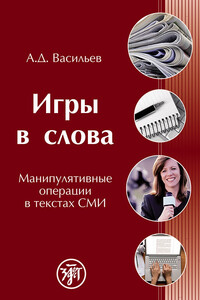
Монография посвящена манипулятивному использованию слов в текстах российских средств массовой информации. Для иллюстрации дискурсивных процессов представлены и проанализированы многочисленные примеры.
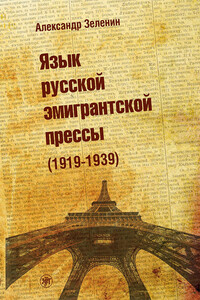
Книга отражает результаты диссертационного исследования, основанного на материале богатейших зарубежных архивов. Адресована специалистам в области языка прессы, языка и культуры русского зарубежья и всем, кто интересуется историей русской эмиграции первой волны. Издается в авторской редакции.
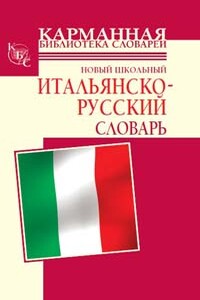
Словарь, созданный русскими и итальянскими специалистами, знакомит читателей с новыми словами, их различными значениями и оттенками, а также случаями употребления, которые можно активно использовать в повседневной жизни.Более 1000 слов и текстовых примеров, позволяющих раскрыть особенности синтаксиса современного итальянского языка.
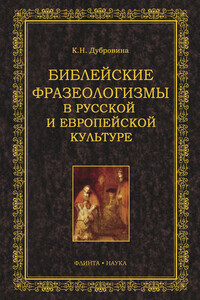
Книга представляет собой научный труд в популярном, доступном изложении. В ней рассказывается о библейских фразеологизмах (образных выражениях, пословицах, поговорках, афоризмах, крылатых изречениях) и библеизмах – словах в русском и других европейских языках, а также об отражении библейских образов, сюжетов, идей, правовых и морально – этических норм и воззрений древнего Востока в культуре народов, исповедующих христианскую религию. Особое внимание уделяется русской национальной культуре: использованию библейских слов и выражений в русском языке, в художественной и публицистической литературе, в изобразительном и музыкальном искусстве.Для гуманитариев разных специализаций: филологов, историков, культурологов, искусствоведов, школьных учителей, преподающих основы христианской (православной) культуры, а также для самого широкого круга читателей, интересующихся историей русского языка и культурой русского и европейских народов.Книга создана на кафедре общего и русского языкознания филологического факультета Российского университета дружбы народов (РУДН) при поддержке Российского государственного научного фонда (РГНФ).